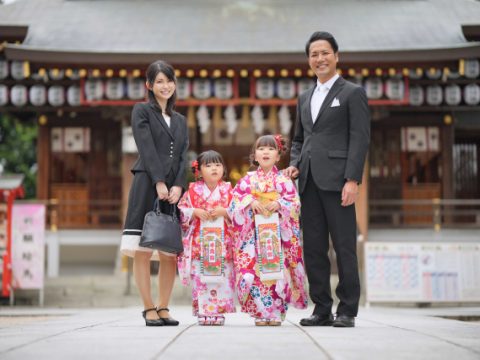Sekihan (赤飯)
JAPANESE FOODS
02.04.2023

Seki (赤) means Red, and Han (飯) means rice. So Sekihan means Red Rice. It is glutinous rice, also known as short grain rice or glutinous rice, steamed with Azuki beans. Azuki is naturally red, so cooking with Azuki beans gives a red color to the white rice. It is commonly served as a celebratory dish in Japan.

Why is it a celebratory dish?
About 3000 years ago, the first rice was brought from the Asian continent into Japan. Although the rice wasn’t pearly white like the one we eat today. Instead, it was beautiful red-colored rice. From ancient times, the color red was believed to have a power against evil spirits. So when there was a misfortune, people used rice as an offering during the divine work, and ate cooked rice to protect themselves from evil. This custom has shifted into eating red rice when there is a celebration and wishing there won’t be any misfortune in the future.

Why Azuki beans?
Around Kamakura Era (1185 – 1333), people started to discover different varieties of rice, and selectively bred them throughout history. So ancient rice with high tannin became less popular and eventually disappeared from cultivation. Now rice is pearly white, but the culture still remains the same. Therefore, people added azuki beans to add red color to the rice.

What celebration to serve Sekihan?
Here are the most common celebrations to serve sekihan.
- Wedding
- Celebration related to pregnancies and births
- Shichi Go San (七五三): A day of prayer for the healthy growth of young children at ages 7, 5, and 3.
- Celebration of 1st year in school
- Graduation
- New employment
- Coming of age celebration: In Japan, 20 years old is considered an Adult.
- Celebration of Longevity: The celebration starts from age 61, 70, 77, 80, 88, 90, 99, and 100. Each celebration has a unique name.
There are other occasions people serve Sekihan. We can serve Sekihan whenever there is a celebration, either officially or non-officially. If you see someone cooking sekihan, that means congratulations are in order!

Eri Palmer
Eri grew up in Japan. She came to U.S. as an international student, and decided to stay in the country. Cooking is one of her passions, and she loves to cook Japanese food for her children.
Read previous articles by the writer
Read latest articles
KEYWORDS
- # PICKPICK
- # Resume
- # alcohol
- # Rice
- # Soup
- # winter food
- # Fast Food
- # seafood
- # spicy foods
- # raw food
- # fermented food
- # Transportation
- # MEAT
- # Edo culture
- # suits
- # clothing
- # drink
- # fish
- # seasoning
- # Japanese New Years Foods
- # Toshikoshi soba
- # Osechi Ryori
- # Ozoni
- # Christmas
- # Japanese fusion pasta
- # Wafu Pasta
- # Japanese Hot Pot
- # なべ
- # 鍋
- # Miyazaki
- # Chicken Nanban
- # Karamen
- # Autumn Wagashi
- # Mushi-yokan
- # Imo-yokan
- # Japanese Autumn Fruits
- # Autumn
- # Vending Machine
- # fall
- # dango
- # Chestnut rice
- # saury
- # Mushroom
- # Rice vinegar
- # Japanese condiments
- # 調味料
- # Sake
- # Mirin
- # Soy sauce
- # Japanese Noodles
- # Udon
- # Ramen
- # Yakisoba
- # Soba
- # Japanese Seaweed
- # 海藻
- # かいそう
- # Payslip
- # Training
- # Japanese summer foods
- # 和菓子
- # Wagashi
- # ryokucha
- # 夏
- # 飲み物
- # Ramune
- # ラムネ
- # Pokari Sweat
- # ポカリスエット
- # Calpis
- # カルピス
- # Mugicha
- # ume
- # 梅
- # うめ
- # umeshu
- # job hunting
- # tofu
- # Recruitment in Japan
- # miso
- # Japanese cuisine
- # Yellowtail and bonito
- # Children’s Day
- # Kashiwa Mochi
- # Chimaki
- # fruits
- # Kusamochi
- # Types of Agriculture in Japan
- # bread
- # パン
- # パン屋さん
- # japanese bread
- # shokupan
- # meal blead
- # anko bread
- # 桜
- # さくら
- # cherry blossom
- # visa
- # hanami
- # omotenashi
- # sakura
- # おもてなし
- # Japanese hospitality
- # oshibori
- # wet hand towel
- # hand towel
- # restaurant
- # Commuting in Japan
- # Women-only cars
- # Exit gate
- # japanese train
- # train
- # valentine
- # Japanese sweets
- # 朝食
- # Japanese Breakfast
- # Breakfast
- # Japanese
- # 日本
- # healthy
- # persimmons
- # hoshigaki
- # HR
- # work in Japan
- # jinji ido
- # corporate systems
- # Japanese work culture
- # bento
- # ekiben
- # shinkansen
- # omiyage
- # train station
- # Japanese culture
- # work culture
- # mentaiko
- # umeboshi
- # Japanese snacks
- # potato chips
- # Japanese potato chips
- # Japanese writing
- # seaweed
- # konbu
- # ocean foods
- # shio konbu
- # dashi
- # miso soup
- # food processing
- # pear
- # nashi
- # sweet potato
- # japanese sweet potato
- # stingray
- # satsuma imo
- # food value chain
- # homecooking
- # agriculture
- # Japanese homecooking
- # farming
- # nikujaga
- # shojin ryori
- # meat and potatoes
- # traditional foods
- # comfort food
- # buddhist food
- # manufacturing
- # factory
- # eihire
- # vegetarian
- # food and beverage
- # izakaya
- # yatai
- # japanese festival
- # taiyaki
- # matsuri
- # summer
- # Ikayaki
- # smart agriculture
- # shaved ice
- # kakigori
- # かき氷
- # summer dessert
- # Japan
- # Japanese foods
- # dessert
- # fruit
- # matcha
- # icecream
- # Pikcup
- # Pikc up
- # Pcikup
- # skilled labor visa
- # working visa japan
- # Dineer Table in Japan
- # Japanese manner
- # Japanese food
- # Japanese Table Manner
- # Chopsticks
- # Japanese traffic signs
- # traffic information
- # road rules in Japan
- # chocolate
- # green tea
- # Osaka
- # Work Japan
- # Japanese company
- # ikura
- # sushi
- # nigiri
- # wasabi
- # PCIK
- # PICK UP
- # PICK
- # PICKUP








